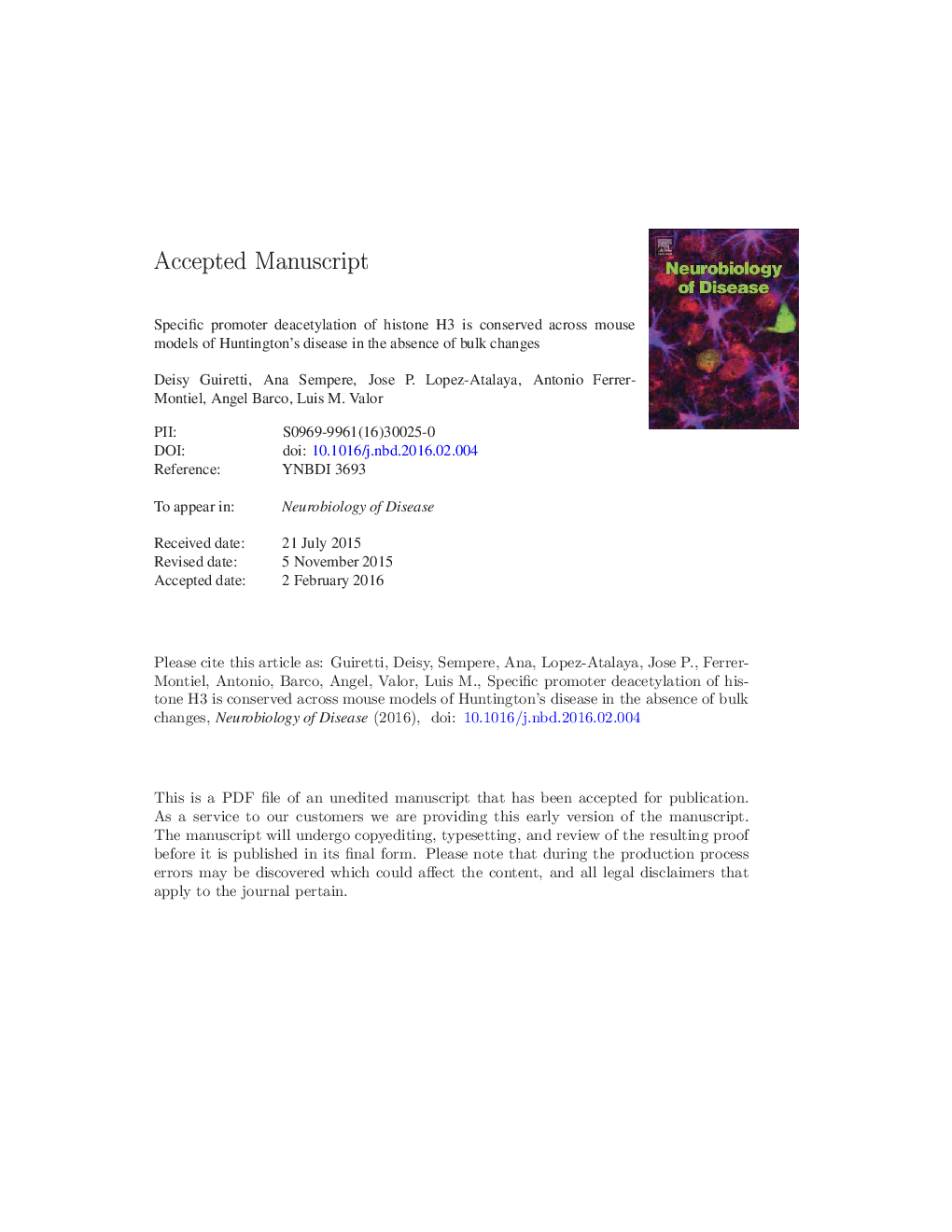| Article ID | Journal | Published Year | Pages | File Type |
|---|---|---|---|---|
| 6021423 | Neurobiology of Disease | 2016 | 42 Pages |
Abstract
Defective epigenetic regulation has been postulated as a possible cause for the extensive and premature transcriptional dysregulation observed in experimental models of Huntington's disease (HD). In this study, we extended our observations in the N171-82Q mouse strain relating to the limited impact of polyQ pathology on the global histone acetylation to other animal and cellular models of HD, namely the R6/1 and YAC128 strains, striatal-electroporated mice, primary neuronal cultures and stably transfected PC12 cells. In the absence of bulk chromatin changes, we nonetheless documented histone deacetylation events at the transcription start sites (TSS) of genes relevant to neuronal functions (e.g., Rin1, Plk5, Igfbp5, Eomes, and Fos). In some instances, these local deficits were associated with an increased susceptibility to transcriptional dysregulation (e.g., Camk1g and Rasl11b) and the defective trimethylation of histone H3 at lysine 4 (H3K4me3), another covalent modification of histone tails that is related to active transcription and is also altered in HD. Overall, this study provides further insight into the nature and extent of epigenetic dysregulation in HD pathology.
Keywords
Related Topics
Life Sciences
Neuroscience
Neurology
Authors
Deisy Guiretti, Ana Sempere, Jose P. Lopez-Atalaya, Antonio Ferrer-Montiel, Angel Barco, Luis M. Valor,
